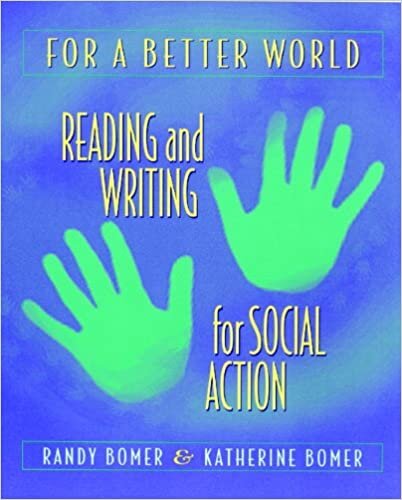
Suggested Professional Texts
Authored and Edited by Local Teacher Activists
In Social Justice Talk, Chris Hass, along with his colleagues Nozsa Tinsley, and Tiffany Palmatier, detail how to facilitate rich discussions that disrupt the harmful social beliefs and practices we and our students are immersed in every day. Each chapter is filled with vignettes, transcripts, and video clips from real classrooms and families that offer realistic expectations and models of what we can expect and hope for when we take on this work.
Gloria Boutte’s text on diversity and multiculturalism captures the complexity of multicultural education by examining issues from early childhood through elementary school, high school, university, to the workplace. Testing and parenting issues are examined along with many areas of multiculturalism including ethnicity, religion, exceptionality, socioeconomic status, and gender.
Focused on preparing educators to teach African American students, this straightforward and teacher-friendly text by Gloria Boutte features a careful balance of published scholarship, a framework for culturally relevant and critical pedagogy, research-based case studies of model teachers, and tested culturally relevant practical strategies and actionable steps teachers can adopt.
Filled with day-to-day literacy practices, Janice Baines, Carmen Tisdale and Sui Long help elementary school teachers understand their role in dismantling the imbalance of privilege in literacy education. Chapters take readers into classrooms where they will see, hear, and feel decolonizing and humanizing culturally relevant pedagogies as students learn literacy and a critical stance through musical literacies, oral histories, heritage lessons, and building a critical consciousness.
In this inspiring collection, 13 early childhood leaders take action to challenge and change inequitable educational practices in preschools and elementary schools. For them, educating for social justice is not an empty platitude. Steadfast and resolute, they turn rhetoric into reality as they guide early childhood teachers to teach for social justice innovatively and strategically.
Books as bridges enable readers to speak freely, think deeply, and take action. In Reading to Make a Difference, Lester and Katie build on the work of Rudine Sims Bishop, extending the notion of books as windows, mirrors, and doors. They offer a pathway that can lead students to take action for social justice causes. They show you how to move beyond exposing your students to diverse children's literature by offering an instructional framework that is applicable to any topic and can be adapted to your own classroom or community.
Tasha Laman helps classroom teachers, ELL specialists, administrators, and literacy coaches become confident in their ability to support English language learners' growth as writers. This text provides insight and practical tips for getting ELL students writing, even if they are at the very beginning stages of English language acquisition.
Each chapter is stocked with specific tools and strategies that help writing instruction meet the needs of ELL writers; illustrated classroom vignettes, samples of children's writing, student observations, and planning notes based on the information in that chapter.
Heidi Mills helps teachers integrate a balanced literacy approach into every corner of their curriculum. This approach invites students to experience inquiry while developing four habits necessary for content learning: observing, questioning, gathering evidence, and sharing new learning. This book relates to the social justice work we do in our classrooms as we not only strive to provide the very best student-centered education we can for our students but also create routines and structures that help them begin to question societal norms and injustices.
Timothy O'Keefe from the Center for Inquiry in Columbia, SC and his work with learning literacy through inquiry (2nd and 3rd grades) is the focus of this book. The authors take you through a day in his classroom looking at curricular structures, and instructional strategies as he supports his students as readers and writers in Reading and Writing Workshops.


























